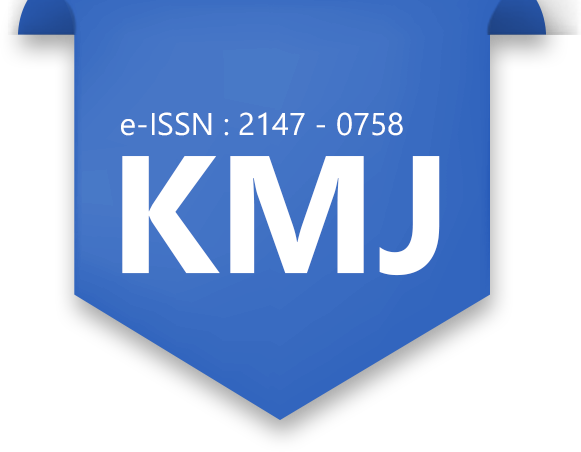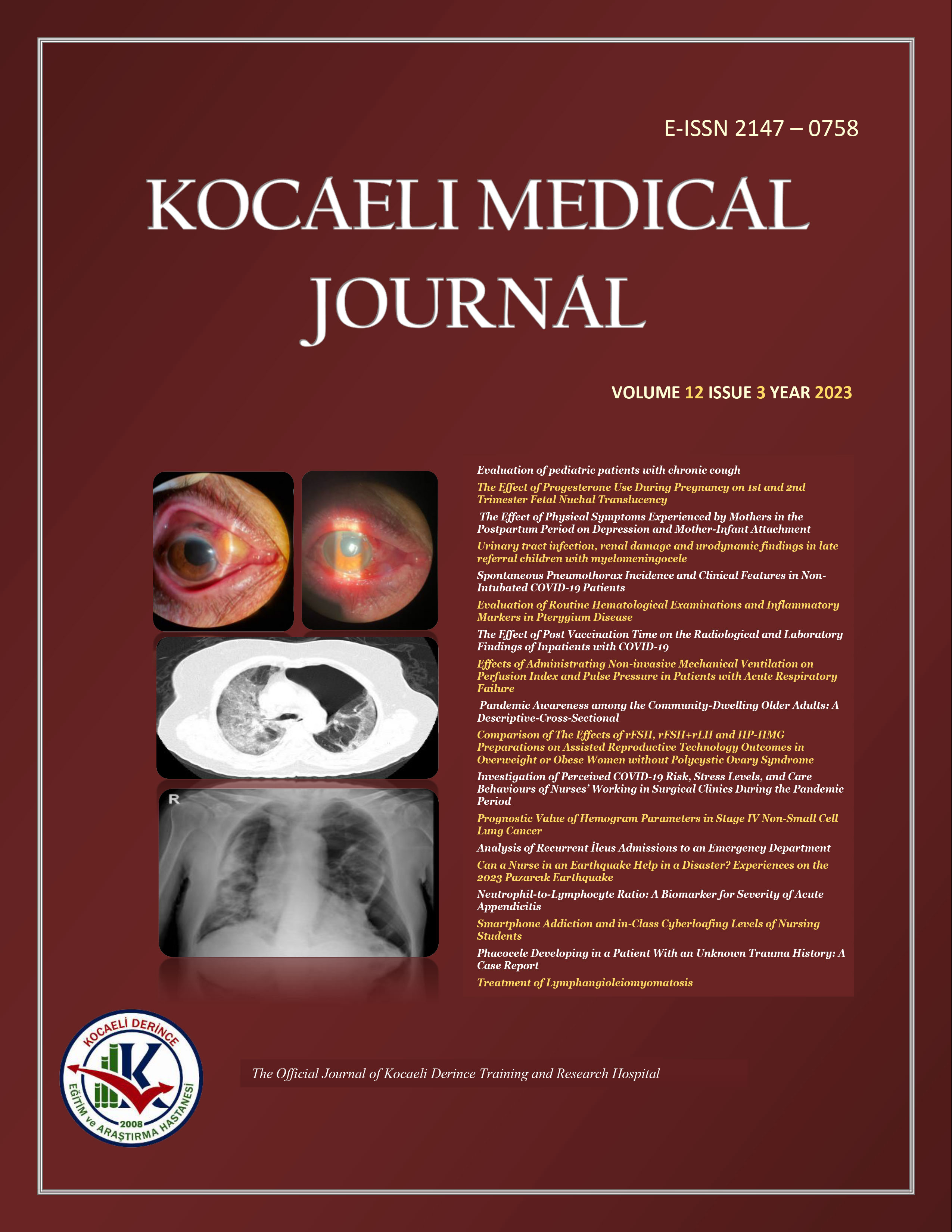
Can a Nurse in an Earthquake Help in a Disaster? Experiences on the 2023 Pazarcık Earthquake
Evin Korkmaz1, Dilay Hacıdursunoğlu Erbaş2, Hatice Azizoğlu3, Betul İlbey Koç2, Fatma Eti Aslan11Bahçeşehir University Faculty of Health Sciences Department of Nursing, İstanbul, Turkey2Sancaktepe Şehi̇t Prof.dr. İlhan Varank Traınıng And Research Hospıtal, İstanbul, Turkey
3Van Yuzuncu Yil University, Faculty of Faculty of Health Sciences Nursing Department, Van, Turkey
INTRODUCTION: Two devastating earthquakes occurred in Turkey on February 6, 2023. This study was conducted with the aim of examining in depth the experiences of earthquake survivor nurses affected by these major earthquakes in caring for earthquake survivor patients.
METHODS: The study was conducted in a qualitative study design with a phenomenological type. Data were collected in March-April 2023. The interviews were completed online and lasted between 29 and 40 minutes. The audio recordings of the data obtained were manually transcribed by researchers trained in qualitative research, and the MAXQDA program was used to create codes and themes. The Consolidated Criteria for Reporting Qualitative Research (COREQ) was used as a guide for reporting this study.
RESULTS: Nine earthquake survivor nurses were included in the study. The average age of the nurses was 29.6 years, 55% were female, 44% had 1-5 years of working experience, and 55% worked in emergency services, intensive care and operating rooms. As a result of in-depth interviews with nurses; 1- are we safe? 2- expressions of the moment of the earthquake, 3- differences in care 4- working as an earthquake survivor nurse, four main themes and thirteen sub-themes were formed.
DISCUSSION AND CONCLUSION: The self-sacrificing efforts of earthquake survivor nurses to provide care to earthquake survivor patients are in line with the literature. It is thought that the readiness of nurses for a major disaster will provide competence and competence in intervention in this situation.
Depremzede Hemşire Bir Felakette Yardımcı Olabilir mi? 2023 Pazarcık Depremi Üzerine Deneyimler
Evin Korkmaz1, Dilay Hacıdursunoğlu Erbaş2, Hatice Azizoğlu3, Betul İlbey Koç2, Fatma Eti Aslan11Bahçeşehir Üniversitesi, Sağlık Bilimleri Fakültesi, Hemşirelik Bölümü, İstanbul2Şehit Prof. Dr. İlhan Varank Sancaktepe Eğitim ve Araştırma Hastanesi, İstanbul
3Van Yüzüncü Yıl Üniversitesi Sağlık Bilimleri Fakültesi, Hemşirelik Bölümü, Van
GİRİŞ ve AMAÇ: Türkiyede 6 Şubat 2023 tarihinde iki yıkıcı deprem meydana geldi. Yaşanan bu büyük depremlerden etkilenen depremzede hemşirelerin depremzede hastalara bakım verme deneyimlerinin derinlemesine incelemek amacı ile bu çalışma yapıldı.
YÖNTEM ve GEREÇLER: Çalışma nitel çalışma deseninde fenomolojik tipte yapıldı. Veriler Mart -Nisan 2023 tarihinde toplandı. Görüşmeler, online olarak ve 29 ila 40 dakika arasında bir sürede tamamlandı. Elde edilen verilerin ses kayıtları nitel araştırma eğitimi alan araştırmacılar tarafından manuel olarak deşifre edildi, kodların ve temaların oluşturulmasında, MAXQDA programı kullanıldı. Bu çalışmanın raporlanmasında, Kalitatif Araştırma Raporlama Konsolide Kriterleri (COREQ) rehber olarak kullanıldı.
BULGULAR: Çalışmaya dokuz depremzede hemşire dahil edildi. Hemşirelerin, ortalama yaşı 29.6, %55i kadın, %44ü 1-5 yıl arasında çalışma deneyimine sahip, %55i acil servis, yoğun bakım ve ameliyathanede çalıştığı belirlendi. Hemşireler ile yapılan derinlemesine görüşme neticesinde; 1- güvende miyiz? 2- deprem anının ifade ettikleri, 3- bakımdaki farklılıklar 4- depremzede hemşire olarak çalışmak başlıklı dört ana tema ve on üç alt tema oluştu.
TARTIŞMA ve SONUÇ: Depremzede hemşirelerin depremzede hastalara bakım verme konusundaki özverili çabaları literatürle paralellik göstermektedir. Hemşirelerin büyük bir felakete hazır olmalarının bu duruma müdahale konusunda yetkinlik ve yeterlilik kazandıracağı düşünülmektedir.
Corresponding Author: Evin Korkmaz, Türkiye
Manuscript Language: Turkish












